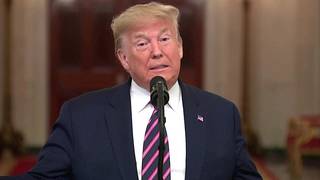
The historic second impeachment trial of former President Donald Trump marks the first time a president will face impeachment after leaving office, and many Republicans claim the trial of a former president is unconstitutional. But most legal experts disagree. “Of course the Senate can conduct this trial,” says Alan Hirsch, author and chair of the Justice and Law Studies program at Williams College. He says doing otherwise would give presidents a “get-out-of-impeachment-free card” at the end of their terms. Since the U.S. was founded, the Senate has conducted just three other presidential impeachment trials: Andrew Johnson in 1868, Bill Clinton in 1999 and Donald Trump in 2020. The House’s second impeachment of Trump came a week before his term ended for inciting the deadly insurrection in the U.S. Capitol on January 6, which was aimed at stopping lawmakers from counting the Electoral College votes.
